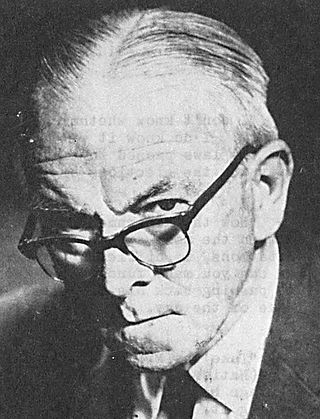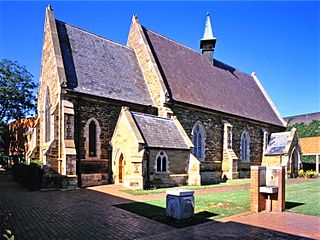Related Research Articles

Alan Stewart Paton was a South African writer and anti-apartheid activist. His works include the novels Cry, the Beloved Country (1948), Too Late the Phalarope (1953), and the short story The Waste Land.

KwaZulu-Natal is a province of South Africa that was created in 1994 when the government merged the Zulu bantustan of KwaZulu and Natal Province.

Pietermaritzburg (; is the capital and second-largest city in the province of KwaZulu-Natal, South Africa after Durban. It was named in 1838 and is currently governed by the Msunduzi Local Municipality. The town was named after King Dingane's royal homestead uMgungundlovu. Pietermaritzburg is popularly called Maritzburg in Afrikaans and is often informally abbreviated to PMB. It is a regionally important industrial hub, producing aluminium, timber and dairy products, as well as the main economic hub of uMgungundlovu District Municipality. The public sector is a major employer in the city due to local, district and provincial government offices located here.

The University of KwaZulu-Natal is a university with five campuses in the province of KwaZulu-Natal in South Africa. It was formed on 1 January 2004 after the merger between the University of Natal and the University of Durban-Westville.

Ezemvelo KZN Wildlife is a governmental organisation responsible for maintaining wildlife conservation areas and biodiversity in KwaZulu-Natal Province, South Africa. Their headquarters is in Queen Elizabeth Park situated on the northern slopes of Pietermaritzburg, the KwaZulu-Natal provincial capital. Prior to 1994, it was known as the Natal Parks Board.

The University of Natal was a university in the former South African province Natal which later became KwaZulu-Natal. The University of Natal no longer exists as a distinct legal entity, as it was incorporated into the University of KwaZulu-Natal on 1 January 2004. It was founded in 1910 as the Natal University College in Pietermaritzburg and expanded to include a campus in Durban in 1931. In 1947, the university opened a medical school for non-white students in Durban. The Pietermaritzburg campus was known for its agricultural engineering programmes, hence the nickname "the farmers" whilst the Durban campus was known as "the engineers," as it concentrated on other engineering programmes.
Peter McKenzie Brown was a founding member of the Liberal Party of South Africa and succeeded Alan Paton as its national chairman in 1958.
Patrick Bond is Distinguished Professor at the University of Johannesburg Department of Sociology, where he directs the Centre for Social Change. From 2020-21 he was professor at the University of the Western Cape School of Government and from 2015–19, distinguished professor of political economy at the University of the Witwatersrand Wits School of Governance. Before that, from 2004, he was senior professor at the University of KwaZulu-Natal, where he directed the Centre for Civil Society. His research interests include political economy, environment, social policy, and geopolitics.
Tholakele Hope "Tholie" Madala was a judge of the Constitutional Court of South Africa between October 1994 and October 2008. He was appointed to the court by Nelson Mandela upon the court's inception. Before that, he practised as a human rights lawyer in the Transkei, taking silk in 1993, and served briefly in the Mthatha Supreme Court in 1994. He retired from the bench in 2008.
Thembile Lewis Skweyiya was a South African lawyer and judge who served on the Constitutional Court of South Africa between February 2004 and May 2014. He rose to prominence as a civil rights lawyer during apartheid and he served three years in the KwaZulu-Natal High Court before his elevation to the Constitutional Court.
Johann Vincent van der Westhuizen is a South African who served on the Constitutional Court of South Africa from February 2004 to January 2016. He was a professor of law at the University of Pretoria from 1980 to 1999, when he joined the bench as a judge of the High Court of South Africa.

The KwaZulu-Natal Division of the High Court of South Africa is a superior court of law with general jurisdiction over the KwaZulu-Natal province of South Africa. The main seat of the division is at Pietermaritzburg, while a subordinate local seat at Durban has concurrent jurisdiction over the coastal region of the province. As of January 2024 the Judge President of the division is Thoba Poyo-Dlwati.
The Legal Resources Centre (LRC) is a human rights organisation based in South Africa with offices in Johannesburg (including a Constitutional Litigation Unit), Cape Town, Durban and Grahamstown. It was founded in 1979 by a group of prominent South African lawyers, including Arthur Chaskalson, Felicia Kentridge, and Geoff Budlender, under the guidance of American civil rights lawyers Jack Greenberg and Michael Meltsner, then Director-Counsel and former First Assistant Counsel of the NAACP Legal Defense and Educational Fund respectively.
John Mowbray Didcott was a South African judge who served in the Constitutional Court of South Africa from February 1995 until his death in October 1998. He joined the bench in 1975 as a judge of the Natal Provincial Division, where he was known for defending human rights during the apartheid era.
Leona Valerie Theron is a judge of the Constitutional Court of South Africa. Before her elevation in July 2017, she served in the Supreme Court of Appeal between December 2010 and June 2017. She is the first Coloured judge to serve in the Constitutional Court.
The following is a timeline of the history of Pietermaritzburg. It is part of the Msunduzi Local Municipality in the Umgungundlovu District Municipality, KwaZulu-Natal province, South Africa.
Trevor Richard Gorven is a South African judge of the Supreme Court of Appeal. Before his elevation to that court, he served in the KwaZulu-Natal High Court from December 2008 to June 2021. He was formerly an advocate in Pietermaritzburg, primarily practising civil litigation, and he received silk status in 2006.
Mahendra Ramasamy Chetty is a South African judge of the High Court of South Africa. He was appointed to the KwaZulu-Natal Division in June 2014. Before that, Chetty was an attorney for the Legal Resources Centre, where he worked between 1990 and 2014; he was the director of the centre's Durban office from 1999 onwards. He was admitted as an attorney in 1988.

Max du Plessis is a South African barrister and academic. He specialises in international, administrative and constitutional law and has worked South Africa and England. His practice is based in Durban.
Professor Colin de Berri Webb was a South African historian, activist, and university administrator, who promoted the teaching of African history. He focused especially on Zulu history and the region of Natal.
References
- ↑ Reflections on the role of courts, government, the legal profession, universities, the media and civil society in a constitutional democracy: Judge Johann van der Westhuizen (2008) 8 AFRICAN HUMAN RIGHTS LAW JOURNAL at 252
- ↑ S v van Niekerk 1970 (3) SA 655; S v van Niekerk 1972 (3) SA 711
- ↑ South African Associated Newspapers Ltd and van Niekerk v. Estate Pelser 1975(4) SA 797
- ↑ Alan Paton, eulogy in van Niekerk's "The Cloistered Virtue: Freedom of Speech and the Administration of Justice in the Western World", Praeger Publishers, New York, 1987
- ↑ (ibid.)
- ↑ University of Natal: Social Dynamics, Volume 2, Issue 1 June 1976, pages 44 - 52
- ↑ Overport Publishers, Durban, 1979
- ↑ Lecture, 25 March 2007, University of Pretoria Centre for Human Rights
- ↑ Paper delivered at a seminar organised by the Nelson Mandela Foundation, Johannesburg, 2 April 2009:
- ↑ Interview with Padraig O'Malley, 28 March 2002
- ↑ JCA Colloquium, Uluru, 9 April 2001
- ↑ State of the Province Address, 14 February 2007
- ↑ Eulogy, op.cit